Maracanã House by Terra e Tuma
An entrance concealed behind a ceramic mural leads down into a sunken living room and courtyard at this house in São Paulo by Brazilian architects Terra e Tuma.
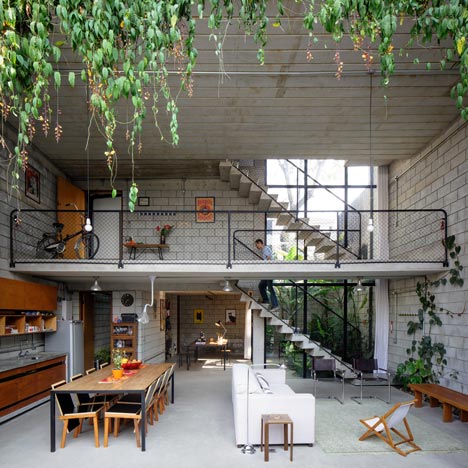
Designed for architect and studio director Danilo Terra and his family, the three-storey Maracanã House was constructed on a tiered site in the city suburbs, where the lowest level of the ground is a storey below the street.
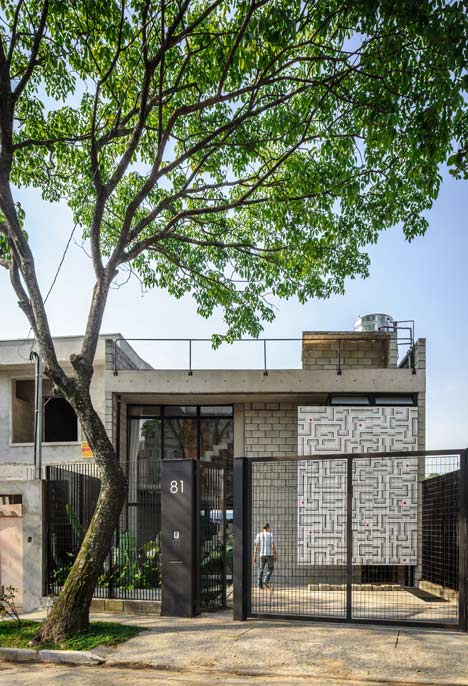
Terra e Tuma constructed the house using concrete and left chunky block walls exposed around both interior and exterior spaces.
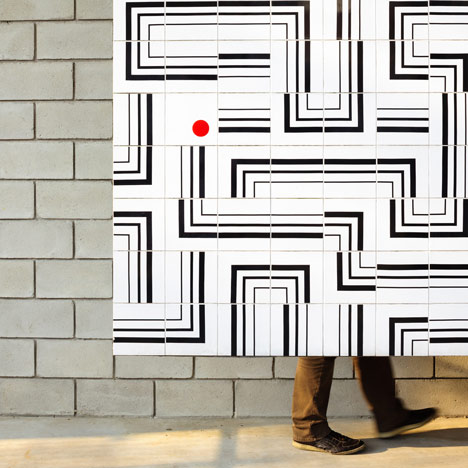
The ceramic mural hovers just in front of the entrance and is a piece that artist Alexandre Mancini created especially for the house.
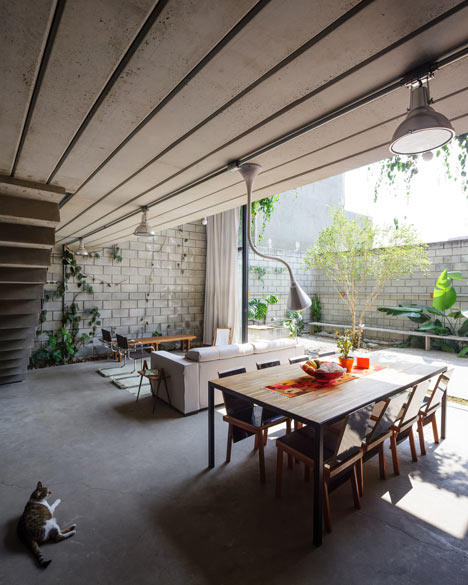
The tiles display a maze of angular lines and shapes, interspersed with the occasional red dot. "I worked with a particular shape, a red dot," explained Mancini. "I believe it points to and emphasises the rhythm of the composition."

Once inside, this entrance is revealed to be on a mezzanine middle floor, where concrete staircases lead up to first floor bedooms or down into the open-plan living and dining room.
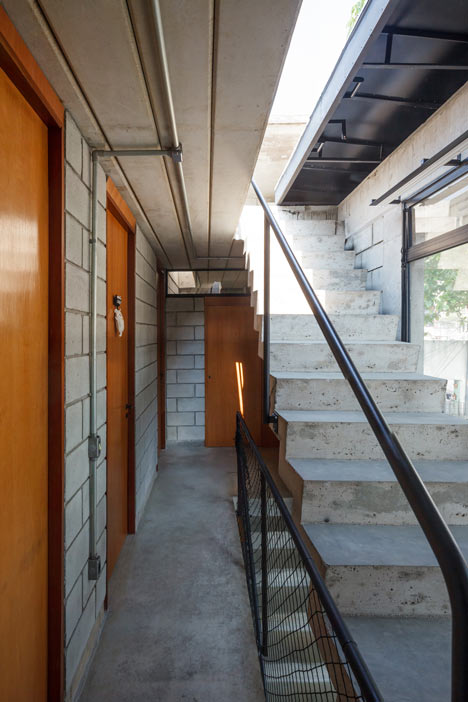
Large glass doors open the living room out to the courtyard garden beyond, while a second sunken courtyard is positioned at the front of the house beside a tall window stretching all the way up to the roof.
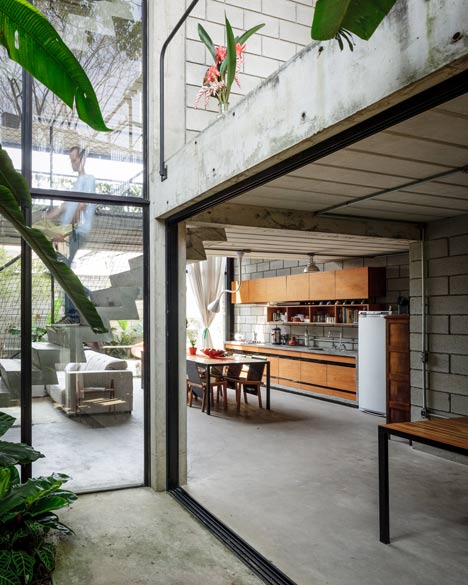
Other recently completed houses in São Paulo include one clothed in golden aluminium and one with concrete upper storeys perched above a living room without walls. See more architecture in Brazil.
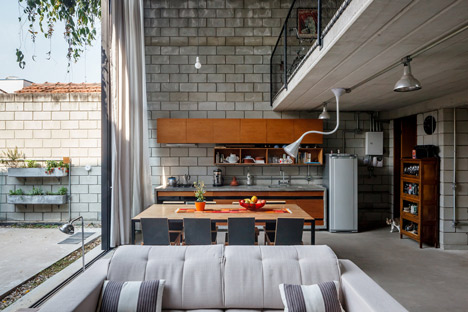
Photography is by Pedro Kok.
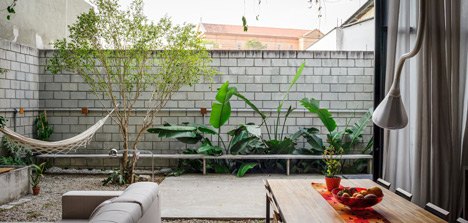
Here's a project description written by architect Daniel Corsi, translated into English by Monika Sönksen:
São Paulo. In this city, which contemporaneity is able to perform the most extraordinary urban contrasts for us, living can reveal an encouraging condition.
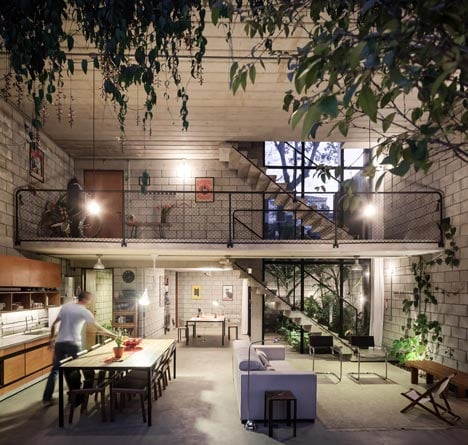
In search of a place where this could be experienced, the idea of an elementary residence acquires the character of a happening. Thus, as this house decided to silently place itself at the westerly metropolitan meanders, is how it is presented at Maracanã Street.
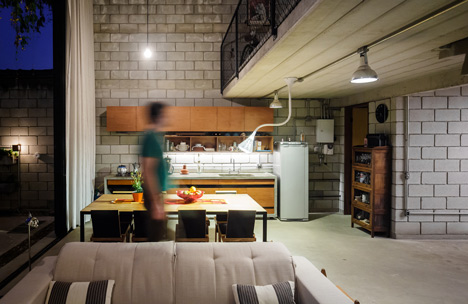
The plans which define the geometry – opaque in grayish materiality, clear in glass surfaces or vibrant on the access mural – shows its presence like a new event around the bucolic surroundings, where curious people wonder this new construction. Its discordant geometry in relation to the traditional houses of the neighborhood surprises upon the moment when it conceals any territorial definition, admitting as an element and as a public event, takes possession of the street which allows to be perceived. Through its whole property's occupation as it is available, it shares its limits as if internalizes the surrounding and though arises its unique place.
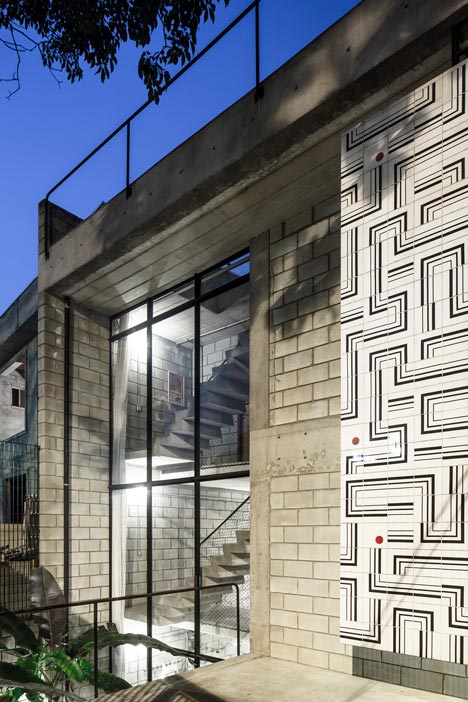
More than a space, its levels gradually form a path through which outside and inside merge in a proper and continuous shape. The house discovers new possibilities to the limitations of the scanty plot, whose complexity exceeds horizontal and vertical routes which invariably leads to a new spacial experience, capable to elucidate singularities of the district's geography.
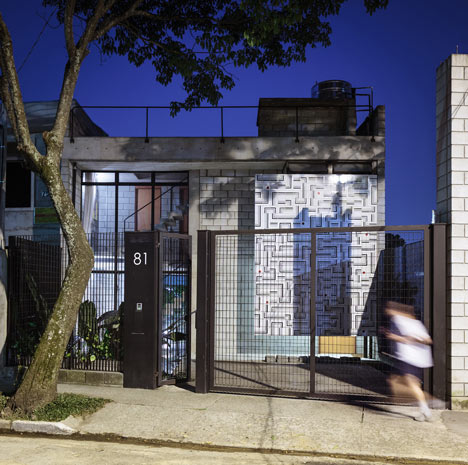
Being in the house of Maracanã Street is being in Lapa; is to live together with its peculiarities, stamped in the expectation to discover until where its spaces can conduct us and the possibility it offers the contemplation of neighbours reddish roof constructions and the church facade which crowns the district, while the sunset at São Paulo's horizon gets unveiled.
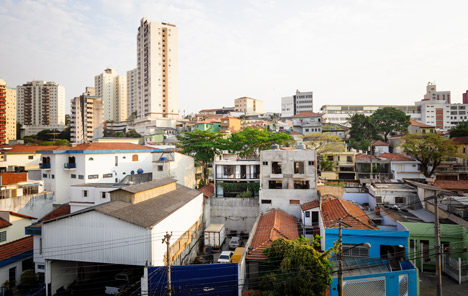
Entering the house doesn't mean to set apart the city, which leads us to it or to close off a disconnected universe. Its access has to be discovered from behind the ceramics mural painted in black, white and red compositions. Entering the house means, simply to transpose a succession of spaces, now narrow, now lightened, now shady, which leads us always to new experiences.
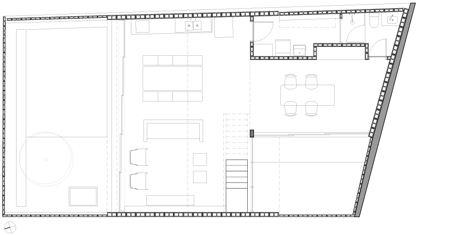
Above: lower floor plan - click above for larger image
The house's arrival happens from the emptiness, which is a viewpoint to the living space and also an identification area of its functional sections: social and services below, intimate above. Like the city streets, the lights between their spaces enlightens every directions, through big glass openings which sets against the solidity of the concrete materiality which it is built.

Above: middle floor plan - click above for larger image
Which way some arrives, which way some passes, which way some goes? Through the space, through the emptiness. Going around or staying, that's how its extension is discovered. We can find ourselves immersed in its lower pavement, defined by concrete plans, by the gardens and by the backyard which shape the ambiance, or we can go through vertically until the gliding plan of the roof unveils the sky in a special instant leaving us as observers of the city whose point of view is this house's roof top.

Above: upper floor plan - click above for larger image
The house is a living infrastructure. The pavements which configures a succession of perspectives is subtle protected by the presence of big glass frames. The handling of the technique and the use of minimum materials, as if it where stones over stones in its essence, confirm that Architecture can undress the present temporary superficialities and elevate only the spacial essence.

Above: roof plan - click above for larger image
The shelter, the protection to the fundamental, comprehend the nature into what the house is destinated and the sense it assumes, for those who are witnesses. Nothing more is needed for the contemporaneus city living. Here is the fundamental residence, unique and revealed.
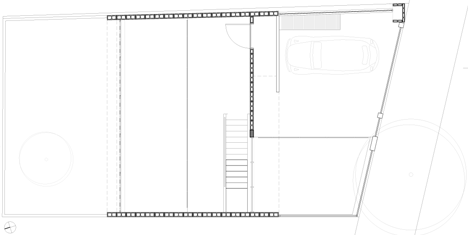
Above: long section from courtyard to street - click above for larger image

Above: cross section through living room

Above: cross section through mezzanine

Above: cross section through staircase

Above: front elevation

Above: side elevation

Above: rear elevation

Above: side elevation